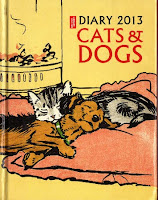Among the various exciting things to have happened recently, there's one that you might have missed.
OK That's enough suspense - it's the arrival of 30 paperback copies of
Thyme Running Out by
Panama Oxridge, the sequel to the amazing
Justin Thyme.
If there is one book that has helped our bookstore stay open in the face of Amazon, The Book People, supermarkets and now The Kindle it's
Justin Thyme.
If you have read it, you'll know just how ingenious it is. We've had nothing like it, ever!
Until now!
With the arrival of the sequel, even
Justin Thyme comes in second place for ingenuity, shocks and surprises. It is utterly brilliant and despite being about 60 pages thicker is an even more reasonable price. It also has the usual appendix of the more difficult words and there are clues and secrets everywhere. Oh! and lots of Time Travel!
Here's my review and
do watch this blog for a possible special deal if you've not read
Justin Thyme.
Thyme Running Out
Panama Oxridge paperback £6.99

I have been wanting to write a review of
Thyme Running Out ever since I first read the hardback late last year. Now that the paperback is out, I really must get down to it. There’s a problem though. I can type a string of totally honest complimentary adjectives which will not help make up a reader’s mind if I don’t relate them to the plot. The plot, you see, is the problem. It’s almost impossible to mention any of the events in this book without giving something away. There are so many shocks and surprises that must remain secret that I daren’t mention any of them. Well, perhaps a few, eh?
The book starts slowly and amusingly with Justin using his Thyme Machine to investigate the extinction of the Dodo, only to find that a baby one has hitchhiked back with him to the present. The dodo becomes an addition to the strange pets in the castle; Eliza the computer literate gorilla, Burbage, the Shakespeare quoting parrot and the eight legged cat, Tybalt.
There are also new staff members, Peregrine Knightly, the drippy nosed butler and Evelyn Garnet, the ruthless replacement nanny (for Nanny Verity is still missing). Either could be planning to steal the Thyme Machine. The action soon starts to rush along with discoveries about Mrs Kof and the new Nanny being only minor news compare with some of the most amazing revelations that ace detective Justin discloses in a Poirot scene that will have you gasping, chortling and scratching your head, all at the same time. And I haven’t even mentioned the big surprise which locked up my brain for several seconds. I simple could not believe the trick that the author had played on me. If you thought
Justin Thyme was tricksy, just you wait till you read
Thyme Running Out. There is one sentence in the book that virtually demanded that I had to read
Justin Thyme all over again.
It’s ingenious and complex enough to challenge even Sherlock Holmes (and he does get a faint mention). It’s amazing. It’s funny. It’s gripping. It’s even moving. Finally, though it’s difficult to believe that it could be better than
Justin Thyme, it is!
 Father Brown is currently being filmed in The Cotswolds and part of the filming is local to the shop so where else would Mark Williams go when looking for a book.
Father Brown is currently being filmed in The Cotswolds and part of the filming is local to the shop so where else would Mark Williams go when looking for a book.






















